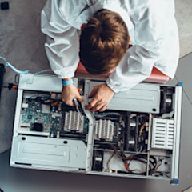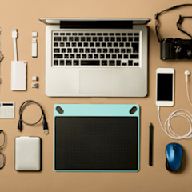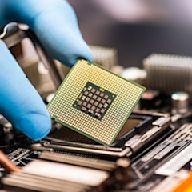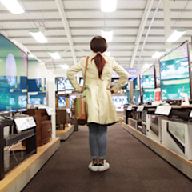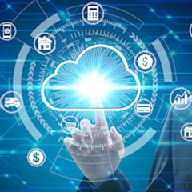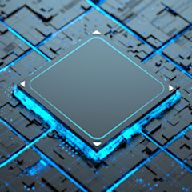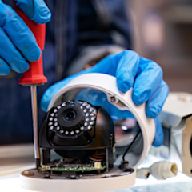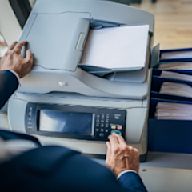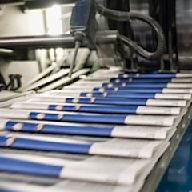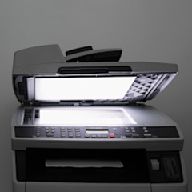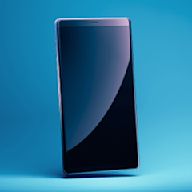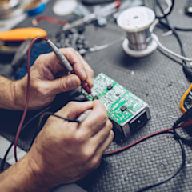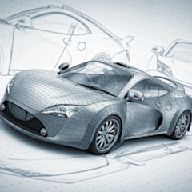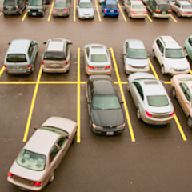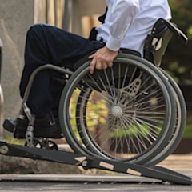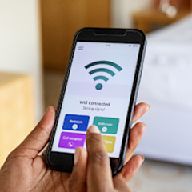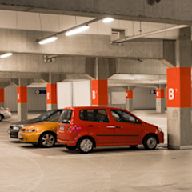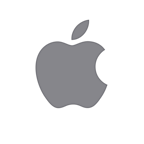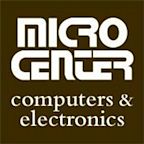Search Results
- DictionaryCom·put·er/kəmˈpyo͞odər/
noun
- 1. an electronic device for storing and processing data, typically in binary form, according to instructions given to it in a variable program: "my computer is frozen"
Discover more placesNear Columbus, OH
Refine results for Electronics Retailers
A computer is a machine that can be programmed to automatically carry out sequences of arithmetic or logical operations ( computation ). Modern digital electronic computers can perform generic sets of operations known as programs. These programs enable computers to perform a wide range of tasks. The term computer system may refer to a nominally ...
- Overview
- Computing basics
- Analog computers
- Digital computers
- GeneratedCaptionsTabForHeroSec
A computer is a machine that can store and process information. Most computers rely on a binary system, which uses two variables, 0 and 1, to complete tasks such as storing data, calculating algorithms, and displaying information. Computers come in many different shapes and sizes, from handheld smartphones to supercomputers weighing more than 300 tons.
Who invented the computer?
Many people throughout history are credited with developing early prototypes that led to the modern computer. During World War II, physicist John Mauchly, engineer J. Presper Eckert, Jr., and their colleagues at the University of Pennsylvania designed the first programmable general-purpose electronic digital computer, the Electronic Numerical Integrator and Computer (ENIAC).
What is the most powerful computer in the world?
As of November 2021 the most powerful computer in the world is the Japanese supercomputer Fugaku, developed by RIKEN and Fujitsu. It has been used to model COVID-19 simulations.
How do programming languages work?
The first computers were used primarily for numerical calculations. However, as any information can be numerically encoded, people soon realized that computers are capable of general-purpose information processing. Their capacity to handle large amounts of data has extended the range and accuracy of weather forecasting. Their speed has allowed them to make decisions about routing telephone connections through a network and to control mechanical systems such as automobiles, nuclear reactors, and robotic surgical tools. They are also cheap enough to be embedded in everyday appliances and to make clothes dryers and rice cookers “smart.” Computers have allowed us to pose and answer questions that could not be pursued before. These questions might be about DNA sequences in genes, patterns of activity in a consumer market, or all the uses of a word in texts that have been stored in a database. Increasingly, computers can also learn and adapt as they operate.
Computers also have limitations, some of which are theoretical. For example, there are undecidable propositions whose truth cannot be determined within a given set of rules, such as the logical structure of a computer. Because no universal algorithmic method can exist to identify such propositions, a computer asked to obtain the truth of such a proposition will (unless forcibly interrupted) continue indefinitely—a condition known as the “halting problem.” (See Turing machine.) Other limitations reflect current technology. Human minds are skilled at recognizing spatial patterns—easily distinguishing among human faces, for instance—but this is a difficult task for computers, which must process information sequentially, rather than grasping details overall at a glance. Another problematic area for computers involves natural language interactions. Because so much common knowledge and contextual information is assumed in ordinary human communication, researchers have yet to solve the problem of providing relevant information to general-purpose natural language programs.
Britannica Quiz
What Do You Actually Know About the Internet?
Analog computers use continuous physical magnitudes to represent quantitative information. At first they represented quantities with mechanical components (see differential analyzer and integrator), but after World War II voltages were used; by the 1960s digital computers had largely replaced them. Nonetheless, analog computers, and some hybrid digital-analog systems, continued in use through the 1960s in tasks such as aircraft and spaceflight simulation.
One advantage of analog computation is that it may be relatively simple to design and build an analog computer to solve a single problem. Another advantage is that analog computers can frequently represent and solve a problem in “real time”; that is, the computation proceeds at the same rate as the system being modeled by it. Their main disadvantages are that analog representations are limited in precision—typically a few decimal places but fewer in complex mechanisms—and general-purpose devices are expensive and not easily programmed.
Are you a student? Get Britannica Premium for only 24.95 - a 67% discount!
Learn More
In contrast to analog computers, digital computers represent information in discrete form, generally as sequences of 0s and 1s (binary digits, or bits). The modern era of digital computers began in the late 1930s and early 1940s in the United States, Britain, and Germany. The first devices used switches operated by electromagnets (relays). Their pr...
Learn about the evolution and functions of computers, from analog to digital, from mainframes to supercomputers, from artificial intelligence to natural language. Explore the history, parts, networking, and applications of computers with Britannica.
Apr 9, 2024 · A computer is a programmable device that stores, retrieves, and processes data. Learn about the history of the computer, how computers are used today, what components make up a desktop computer, what parts are needed for a computer to work, and the types of computers. Find out who makes computers and related information.
Other articles from computerhope.com
- Acer Aspire TC-1760-UA92. Best Budget Tower for Most Buyers. With a 12th Generation Intel Core i5 processor inside paired with 12GB of memory and a 512GB SSD, Acer’s Aspire TC-1760-UA92 stands above every budget tower we’ve recently tested.
- Dell XPS Desktop (8960) Best Mainstream or High-End Desktop for Most Buyers. Dell continues to hold its position as a top dog of desktops, thanks to the stellar XPS Desktop 8960 for 2023.
- NZXT Player: One. Best Budget Gaming Desktop. It's true: You can get a slick-looking gaming PC for narrowly more than $1,000, and the NZXT Player: One is proof.
- Alienware Aurora R16. Best Midrange Gaming Desktop. The Aurora R16 gaming desktop is a new phase for Alienware, leaving its more outlandish case designs behind for more sensible form factors.
Jan 19, 2024 · Learn what a computer is, how it works, and who invented it. Explore the different types of computers, from supercomputers to mobile devices, and their capabilities and applications.
Learn for free about math, art, computer programming, economics, physics, chemistry, biology, medicine, finance, history, and more. Khan Academy is a nonprofit with the mission of providing a free, world-class education for anyone, anywhere.
A computer is a machine that can be programmed to automatically carry out sequences of arithmetic or logical operations (computation). Modern digital electronic computers can perform generic sets of operations known as programs. These programs enable computers to perform a wide range of tasks. Wikipedia
Trending Now







